Advertiser Disclosure: I Will Teach You To Be Rich has partnered with CardRatings for our coverage of credit card products. I Will Teach You To Be Rich and CardRatings may receive a commission from card issuers.
Editorial Disclosure: Opinions, reviews, analyses & recommendations are the author’s alone, and have not been reviewed, endorsed or approved by any of these entities.
Having the right credit cards will help you live a rich life.
Whether you’re building your credit, getting a 2% discount on every purchase, or racking up points for the trip of your dreams, credit cards help you live the life you want.
Here are our favorite credit cards.
The Top 12 Credit Cards
- Chase Sapphire Preferred (Best Rewards Card for Most People)
- Chase Sapphire Reserve ( Best Rewards for High Earners)
- American Express Platinum (Best Travel Perks)
- Blue Cash Preferred Amex (Best for Groceries and Gas)
- Citi Double Cash (Best Cash Back Card)
- Chase Freedom (Best Cash Back With Rotating Categories)
- Capital One® Platinum Credit Card (Best For Building Better Credit)
- Capital One® Secured Mastercard® (Best Overall for Bad Credit)
- The Business Platinum Card from American Express (Best for Business Travel)
- Chase Ink Business Preferred (Best for Online Ad Budgets)
- Capital One® Spark® Cash for Business (Best for Business Cash Back)
- Discover It Secured – (Best Rewards Secured Card)
Jump ahead to
- The Best Travel Credit Cards
- The Best Cash Back Credit Cards
- The Best Business Credit Cards
- The Best Credit Cards for Bad Credit
- Credit Card Types, Brands and Companies
- How to Find The Right Credit Card For You
- Credit Card Reviews
- Chase Sapphire Preferred Review
- Chase Sapphire Reserve Review
- American Express Platinum Review
- Blue Cash Preferred Amex Review
- Citi Double Cash Review
- Chase Freedom Review
- Capital One® Platinum Card Review
- Capital One® Secured Mastercard® Review
- The Business Platinum Card from American Express Review
- Chase Ink Business Preferred Review
- Capital One® Spark® Cash for Business Review
- Discover It Secured Review
The Best Travel Credit Cards
- Chase Sapphire Preferred – Best card overall, great points and perks for a low fee
- Chase Sapphire Reserve – Best rewards for high earners
- American Express Platinum – Best for travel perks
To maximize your rewards, get a travel credit card. Not only will you get the most money back in the form of points, there are all sorts of sweet perks you can get from these cards:
- Points that you can redeem for international business-class flights or amazing rooms at five-star hotels
- TSA Pre-check credits
- Uber credits
- Companion fares on airlines
- Airport lounge access
- Hotel perks like free breakfast, late check-out, and room upgrades
There are a TON of options in the travel credit card space. Most of the major banks have options, all the airlines have 3-4 cards, and the three major hotel chains also have multiple cards. It can be overwhelming.
To start, get one “general” travel credit card. This will be your default card that you use for the majority of your spending. It’ll also kick-start your point-earning machine that you can redeem for airline tickets and hotel rooms.
For your first travel credit card, I highly recommend the Chase Sapphire Preferred. It has a low $95 annual fee, some great perks, and a solid point system. It’s by far the most popular travel credit card out there and for good reason. If you’re a high earner and want a top-tier card, get the Chase Sapphire Reserve. The points are slightly better and there are a few extra perks.
You will be paying annual fees to get access to great travel credit cards. It’s worth it, you’ll easily get your money back in points and perks. Mid-tier travel cards tend to have a $95 annual fee and the top-tier are in the $400-600 range.
The Best Cash Back Credit Cards
- Citi Double Cash – Best overall cash back card
- Chase Freedom – Best card with rotating categories
- Blue Cash Preferred Amex – Best for groceries and gas
The primary benefit of cash back cards is simplicity. For those of you that don’t want to think about your credit cards or manage points, cash back cards are perfect.
In most cases, you want a cash back card with a higher than average cash back percentage on all purchases. Avoid cards that have annual fees, rotating categories, and different cash back rates across categories. Cash back cards really shine when you can throw all your purchases on that card and never think about this stuff ever again. Keep it as simple as possible.
Trying to optimize your cash back rewards only makes sense if you want to squeeze the value form your rewards and also have zero interest in traveling. In that case, the travel cards won’t have any appeal to you and it could be worth the effort to get several cash back cards in order to max out your rewards. In my opinion, this is more effort than it’s worth but it is an option.
One major weakness of cash back cards is that many of them have foreign transaction fees. Watch out for these if you plan on traveling and prefer to have cash back cards instead of a travel credit card.
The Best Business Credit Cards
- The Business Platinum Card from American Express – Best for business travel
- Chase Ink Business Preferred – Best for online ad budgets
- Capital One® Spark® Cash for Business – Best for business cash back
Business credit cards put points earning into hyperdrive. This is how folks rack up millions of points and never have to pay for business class or luxury hotel suites again.
Take a business that has $1 million in expenses that go through credit cards every year. That’s a million extra points at least.
Not many folks can rack up a million points in personal expenses every year. Many businesses can. The best part is that the IRS doesn’t consider points or cash back to be taxable income as long as they’re triggered by a transaction. So you can use business points for personal trips. Be sure to check all this with your accountant just to be safe.
Especially on ad budgets, points can rack up crazy fast. I’ve managed $170,000 in Facebook ad budgets during my career, all of which went through a credit card. That’s 2 million points per year alone. If you spend money on online marketing ads, get a business credit card and collect those points.
When picking the right business credit card, find the one that gets you the most points with your current expenses. If you spend a lot on travel, get a card with bonus points on travel expenses. If you spend a lot on online ads, get one that gives you bonus points there.
If you don’t want to manage points, get a good cash back card and take a small discount on all your credit card expenses.
The Best Credit Cards For Bad or No Credit
- Capital One® Platinum Credit Card – Best for building better credit
- Capital One® Secured Mastercard® – Best overall for bad credit
- Discover It Secured – Best rewards secured card
Credit cards will help you get out of bad credit. Or help you build credit when you don’t have any. Just remember that you need to pay off your balance every month. That’s the key to making credit cards work for you. Otherwise the interest and fees will seriously ding you financially.
As long as you’re paying off your cards every month, credit cards are the easiest way to improve your credit score over time. Even if you only have one credit card and put $50 worth of charges on it every month, that’s more than enough to get started.
With low credit, your primary goal is to get any credit card that will approve you and doesn’t take advantage of you with terrible fees. Points don’t matter, bonuses don’t matter, perks don’t matter. Don’t worry about any of that stuff. Look for a card that has a $0 annual fee from the best bank that will take you. Apply for one at a time until you find a bank that accepts your application. Then start building your credit by using your credit card and paying it off in full every month.
Also don’t worry about the APR. By paying off your balance every month, the APR won’t matter. With bad credit, you’ll get a really high APR anyway.
One option is to get a secured credit card. These cards require you to put a deposit down when you sign up for the card. Then if you don’t pay, the bank can collect that deposit. This allows banks to give credit cards to folks that wouldn’t qualify otherwise. If these are the only cards that you can get, go for it. Get one, build up your credit, then get a better card later.
Once you’ve improved your credit, you’ll have a much easier time getting the nicer cards.
Credit Card Types, Brands, and Companies
Types of Credit Cards
Here are the main types of cards and when you should get them.
Credit Cards vs. Charge Cards
Credit cards and charge cards are almost identical.
The biggest difference is that charge cards must be paid off in full every month, no exceptions. If you don’t pay off your full balance, you could get your account closed and hit with a hefty fee. Charge cards don’t usually have pre-set spending limits either.
The American Express Gold and Platinum cards are the most well-known charge cards.
Credit cards, on the other hand, only require you a minimum payment each month and will gladly charge you a substantial APR in order to carry a balance.
Most people refer to both sets of cards as “credit cards.” So check the terms on your card when applying to see if you’re required to pay the balance in full each month.
Rewards Credit Cards
Rewards cards give you points, perks, or cash back in exchange for using the card for your purchases. It’s like getting a 1-2% discount on everything you purchase.
Travel Credit Cards
Travel cards are where the fun stuff happens. For all your purchases, you’ll get points added to your account. Get enough points and you can redeem for international flights, business class, and suites at 5-star hotels. You also get access to all sorts of travel perks.
If you like to travel and want to maximize the value of your rewards, get a travel credit card.
Cash Back Credit Cards
Cash back cards are much simpler. Instead of getting points that you can redeem, you get cash added back to you account. Most cash back cards don’t have annual fees either.
The downsides are cash back cards don’t have any cool perks and the rewards aren’t quite as valuable as travel cards.
Cards for Building Credit
There are a group of cards specifically designed for people that have bad or no credit. They typically don’t have many perks, they don’t have rewards, and some of them even need to be “secured” with a deposit.
While the rewards are nonexistent, they are perfect for building your credit in order to get access to better cards later.
Student Credit Cards
Starting college is a great time to get your first credit card and start building credit. Many colleges have a bank on campus just for students. And these banks are usually more flexible with students that don’t have any credit history. I still remember the first card I had, the campus credit union wasn’t sure about approving me but the teller I was working with managed to get me approved for half the standard credit limit. That got me started.
Fair Credit Credit Cards
If your credit is okay, you can usually get access to some of the more popular cards with no annual fees and below average rewards. They might not be top-tier cards but they do give you something back while you build up credit.
If you have fair credit, try applying for the basic cards that many banks offer.
Bad Credit Credit Cards
There are cards specifically designed for folks with bad credit. Credit limits are generally really low and the APR is super high.
Be careful when looking at cards in this category. Some cards can have predatory fees so read the fine print and pay your cards in full every month to avoid the high APRs.
Secured Credit Cards
Secured credit cards work a bit differently than normal credit cards. When you open a secured credit card, the bank will ask for a deposit. For example, a secured credit card with a $200 limit might ask for a $200 deposit. If you go delinquent on the card, the bank can keep the deposit. In other words, you have to save up some money in order to open an account.
While this isn’t nearly as convenient as a normal credit card, it does give a lot more folks access to credit cards that wouldn’t normally be able to get them. If you’ve been declined on all other cards, get a secured card so you can start improving your credit.
Balance Transfer Credit Cards
Some cards specialize in balance transfers or have promotional periods for them. Banks benefit by getting you to move balances from other banks to them, allowing them to earn profit from your card interest. You benefit by getting a lower APR or a period where you don’t have to pay interest on balance transfers.
We don’t recommend doing balance transfers. The bigger win is getting in the habit of paying off your cards in full every month so you never have a balance to transfer in the first place. Credit cards are a pretty terrible deal if you pay interest regularly.
That said, we all have periods of bad luck. If you have a batch of unavoidable expenses and need to stretch your dollars in order to get back to a stable place, looking at balance transfer cards could give you some short term relief.
Low Interest Credit Cards
If you plan on carrying a balance, there are cards the specialize in having a below-average APR. We strongly recommend against ever carrying a balance but this is an option.
When looking at these options, be careful about promotional periods. Lots of cards will offer a 0% APR for a set number of months and then hit you with a really high APR after the promotional period ends. Look for a low APR beyond any promotional offers.
Also, the best way to get a low APR is to have a great credit score. Pay off your cards in full every month and you’ll be well on your way to having a credit score that will get you access to the best APR on the best cards.
Business Credit Cards
Business credit cards have a few differences specifically designed for businesses:
- Credit limits tend to be higher since businesses tend to spend more
- Rewards and points categories are tailored for business spending
The best part is that it’s very easy to meet the requirements for a business card. Any sort of side hustle or small business qualifies. You can even apply as a sole proprietorship under your name using your Social Security number.
If you have any side-income, it can be worth getting a business credit card. You’ll want to separate your expenses anyway to make tax-filing easier. It’s a good idea to have at least two credit cards, one for personal and one for business.
Credit Card Issuers (Banks and Lenders)
Every credit card is issued by someone, typically a major bank. For example, The United Airlines credit cards use the United Airlines branding but the card itself is managed by Chase. If you were to get one of those cards, Chase would check your credit, give you a login on their site, and manage your account.
When applying for a new card, it’s good to check which bank manages that card. If any problems come up, you’ll have to work with that bank so it’s helpful to have a bank that you can rely on.
As a general rule, stay away from any cards issued by Bank of America or Wells Fargo. Both have horrible reputations.
Mastercard and Visa
Mastercard and Visa process payments, they’re payment networks. They connect the bank of the merchant to the bank that gave you a credit card and move money between the two every time you use your card.
There’s virtually no difference between Mastercard and Visa cards. If one is accepted, the other is almost always accepted.
The other two primary payment networks in the US are American Express and Discover. But these cards are not accepted as widely as Mastercards and Visas.
We do recommend having at least one Mastercard or Visa in your wallet at all times. Even if your primary card is an American Express card, you’d want a Visa or Mastercard as a backup.
Co-branded Cards (Airlines, Stores and Hotels)
Nearly every airline, most hotels, and many retailers offer their own credit cards.
For airline and hotels, it can be worth getting these cards for the extra perks. But the points value is almost always inferior to a more general travel rewards card like the Chase Sapphire Preferred or the American Express Platinum. So don’t use them as your primary spending card. If the annual fees on airline or hotel cards are worth the extra perks to you, then it’s worth it in addition to your main rewards card.
Most airline cards give you priority boarding, free checked bags, and discounts or passes to lounges. Hotel cards can give hotel status, free nights, and extra points when spending at the hotel property. Check the airlines and hotels that you use most often to see if the offer is worth the annual fee to you.
Stores, on the other hand, are almost always a bad deal. The rewards tend to be inferior. Only consider this if you truly spend a significant amount of money at a single store.
How to Find The Right Credit Card For You
With all the cards out there, how do we pick the right one? We recommend four simple steps.
- Get the Best Card You Can With Your Credit Score
You credit score determines whether or not you have access to the nicer credit cards.
Even if you’re just starting out or had some bad luck along the way, don’t be disheartened if you get declined by the nicer cards. As long as you begin paying off your cards every month and stay current on all your debts, getting a high enough credit score for the top-tier cards is definitely feasible.
Whatever card you need to start with, use it for a few years and build up a solid credit history. Then try applying for a slightly nicer card and do it again. After a decade or so, you should be able to get any card on this list.
- Decide on Simplicity vs Maximization
Let’s assume you have a good enough credit score to get just about any card you want.
What then?
You’ll need to decide which is more important to you: simplicity or maximizing the value of rewards.
If you want simplicity, get a cash back card. You’ll get a straightforward percentage back on every purchase you make and there’s nothing you need to manage or remember. Super simple.
Now if you want to maximize the value of your rewards, you’ll want to get a travel rewards card. These give you points for every purchase that you can redeem for airline tickets, hotel nights, and some retailers. Every point system is a bit different and redeeming points is always more complicated than getting a basic cash back. But for the extra trouble, you will get more value from them.
The one exception to all this if you don’t enjoy traveling. Travel rewards cards focus on people that travel. So if you don’t travel at all, stick to cash back card.
- Factor in the Number of Cards You Already Have
When you’re working on building your credit, I recommend having one card. Only get new cards once you’re credit has improved and you’re ready to upgrade to a better card.
At the point where your credit score is good enough to get a good rewards card, start with one general rewards card that you’ll use for everything. Pick a cash back card that has an above average cash back percentage across all purchases. Or a travel rewards card with a good points program and a few nice perks. Don’t over-complicate it at this stage.
Once that feels comfortable, feel free to expand to 2-3 cards. There are a few reasons to do this:
- Maximize reward across spending categories. You might put gas spending on one card and travel on another in order to get bonus points on different cards.
- Add perks. Airline cards have great perks, so do hotel cards. If you travel a lot, take a close look at these.
- Flexibility with points transfers. Each point program has a different set of partners that you can transfer points to. If you wanted complete flexibility on being able to book airlines rewards for example, having a Chase and an American Express card maximizes your partner coverage so you can book the exact airline or hotel that you want.
I still recommend keeping things simple even as you consider having multiple rewards cards. Rotating points categories, point hacking games, and cycling through card signup bonuses are more trouble than they’re worth.
- If a Business Owners, Repeat
Lastly, if you own a business, you’ll want to repeat this process for your business credit cards.
Even a side hustle or hobby business should keep business and personal transactions separate. That makes taxes and expense tracking a lot easier. And since you should separate everything anyway, why not run all your business transactions through a business credit card and get a bunch of rewards along the way?
Same general rules apply as personal cards. First, decide if you want rewards maximization or simplicity. Cash back cards are best for simplicity, travel cards are better for maximization. Second, start with one general rewards card that can cover the majority of your spending. Then consider additional cards if you really want certain perks or want to maximize rewards value even more.
Credit Card Reviews
Here are our reviews for the best credit cards.
Chase Sapphire Preferred Review
I can’t say enough good things about this card. For your main travel card, the Chase Sapphire Preferred is almost always the best choice.
You’ll get a ton of points on dining and travel, no foreign transaction fees, and plenty of airline and hotel partners to redeem your points with. It’s the best introduction to the world of travel rewards.
And the annual fee is a very reasonable $95.
Stop reading this article and get this card if:
- You’re looking for your first rewards credit card
- You love to travel
- You’re still using a basic credit card from college and want to upgrade
*Terms apply – Learn how to apply online.
Chase Sapphire Reserve Review
Take the Chase Sapphire Preferred and put the points into hyper-drive. That’s the Chase Sapphire Reserve.
This card is a point-earning machine. You’ll get 3X points on all travel and restaurants. I personally love spending money in these categories so I’m able to rack up a ton of points.
On top of that, you get a $300 travel credit each year. This almost covers the $450 annual fee. So in reality, this card will only cost you $150 every year as long as you travel once. For the amount of points that this card generates, that’s an amazing deal.
If you’re a high earner and spend regularly on travel and restaurants, get this card.
*Terms apply – Learn how to apply online.
American Express Platinum Review
Do you love travel perks? Then you’ll love the American Express Platinum card.
It’s the official “I travel in style” card.
You’ll get a set of perks that you can’t find anywhere else:
- Access to Centurion airport lounges
- Access to Delta SkyClub when flying Delta
- Marriott Bonvoy Gold Elite and Hilton Honors Gold Status
- Uber credits and VIP status
- $200 airline incidental fee credits
- TSA Pre-check and Global Entry credits
- Access to the Fine Hotels & Resorts program which gets you free breakfast, room upgrades, and other perks when you book your hotels through it
You’ll also rack up a ton of points on travel by getting 5X points when you book through the American Express travel portal.
The annual fee does get hefty at $550, that’s the only downside.
If you’re looking to travel like a VIP, get this card.
*Terms apply – Learn how to apply online.
Blue Cash Preferred Amex Review
To get the most cash back, use the Blue Cash Preferred from Amex.
You’ll get 6% cash back on groceries on up to $6,000 in purchases each year. That’s $360 in savings which you’ll hit if you spend $115 on groceries each week. You’ll also get:
- 6% on streaming subscriptions
- 3% on gas
- 3% on transit
- 1% on everything else
It does have a $95 annual fee though. You’ll want to max out the grocery benefit in order to make sure you’re getting enough cash back for the card to be worth it.
This is an amazing card for anyone that spends a lot on groceries and gas.
*Terms apply – Learn how to apply online.
Citi Double Cash Review
The Citi Double Cash is my favorite cash back card, by far.
The real value from cash back cards comes from their simplicity. Spend money, get cash back, never manage anything.
That’s exactly what this card offers. No rotating categories, no bonus categories with spend limits, no points programs, just a simple 2% cash back on every purchase.
You’ll get 1% back when you spend, and another 1% back when you pay off your card.
And there’s no annual fee.
On simplicity, this card can’t be beat. That’s why it’s my favorite cash back card.
Keep an eye out for the foreign transaction fee though, that’s the only downside. You’ll want to use a different card when traveling to avoid these fees.
*Terms apply – Learn how to apply online.
Chase Freedom Review

Some cash back cards have rotating categories. The category usually changes each quarter and you’ll get a much higher cash back percentage than normal on purchases for that category. After a few months, the category changes.
The Chase Freedom works exactly like that, you get 5% on up to $1500 in combined purchases in the selected bonus categories for the quarter.
As long as you keep track as the categories change, you can get an extra cash back bonus using a card like this.
Out of all the rotating category cards, my favorite is the Chase Freedom. It’s simple for a rotating category card, doesn’t have annual fees, and gives a 1% cash back on all other purchases.
I’m not the biggest fan of cash back cards with rotating categories. It’s a lot to remember since the bonus cash back changes every quarter. To maximize my cash back, I have to see the announcement, remember it, then change my card habits so I’m picking the right card for the right purchases. It sounds easy in theory but when life gets busy, I can never keep track of this stuff.
However, if you want to maximize your cash back, rotating categories give you the best returns. And the Chase Freedom Review is my favorite card with rotating categories.
*Terms apply – Learn how to apply online.
Capital One® Platinum Credit Card Review
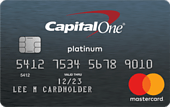
Let’s say that you have average credit. It’s not bad but it’s not good enough to get some of the better cards that we recommend.
In that case, I recommend the Capital One® Platinum Card.
It’s a no-frills card for folks that don’t have good credit yet. So your odds of being approved are much higher than some of these other cards.
It comes with one great perk too. After five on-time monthly payments, your credit limit will increase. That’ll help you build credit even faster since your credit utilization will be lower (the percentage of your total available credit that you regularly use).
There are no annual fees, no foreign transaction fees, or anything else to worry about.
It’s a simple card for you to get started, improve your credit, and upgrade to better cards later. Start here if you can.
*Terms apply – Learn how to apply online.
Capital One® Secured Mastercard® Review
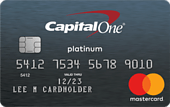
What if your credit is bad enough that the basic credit cards deny you?
In that case, go for a secured card. You’ll have to put a deposit down in order to open the account. In the event that you don’t pay, the bank keeps the deposit.
Yes, it is a pain to save money before getting your credit card. But it gets you a credit card in situations where there aren’t any other options. Save the money you need for the deposit, open a secured card, then improve your credit score enough to get a better card later.
My favorite secured card is the Capital One® Secured Mastercard®. It’s a great option if you have bad credit.
The credit line usually starts at $200. That’s not much but it’s a start. One way to spend more than $200 per month using the card is to make multiple payments to free up more credit. Spend $200, pay it down, spend some more, and keep going. Just remember to pay it off in full every month.
Depending on your credit score, you’ll be asked to make a deposit of $50, $100, or $200.
It doesn’t have an annual fee or foreign transaction fees either. So it’s a solid credit card that won’t take advantage of you.
*Terms apply – Learn how to apply online.
The Business Platinum Card from American Express Review
The Business Platinum card is quite similar to the personal American Express Platinum. They share these core benefits:
- 5X points on airlines and hotels booked through the Amex travel portal
- Access to Centurion airport lounges
- TSA Pre-check and Global Entry credits
- $200 airline incidental fee credits
- Marriott Bonvoy Gold Elite and Hilton Honors Gold Status
- Access to the Fine Hotels & Resorts program
Some of the perks are a bit different on the Business Platinum card. You’ll get these perks that aren’t available on the personal version:
- 1.5X points on purchases of $5,000 or more, up to 1 million additional points per year
- $100 in Dell credits every 6 months ($200 total per year)
In other words, this is the “perks” card for business.
It does have a heavyweight annual fee of $595. The good news is that you can expense this charge for your business and deduct it from your taxes.
Since there’s a lot of overlap in perks between the personal and business versions of this card, you probably shouldn’t get both. You’re paying for perks with this card. So if you’re paying for some of the perks twice, you’re overpaying. I recommend only getting one and using other cards instead of doubling up on the Platinum.
If the perks are worth the annual fee to you, get the card.
*Terms apply – Learn how to apply online.
Chase Ink Business Preferred Review
How much do you spend on online ads for your business?
Many businesses spend quite a lot, it’s often one of the largest credit card expenses.
If you spend money regularly on Facebook or Google Ads, you want to run those transactions through the Chase Ink Business Preferred card. You’ll get 3X points on your ad budget up to $150,000 in spend per calendar year. So if you spend $12,500 in online ads per month, you’ll collect 450,000 points every year. That’s a TON of points simply for switching cards in your Facebook ad Google Ads accounts.
You will get 3X points on a few categories:
- Search and social media ads
- Travel
- Shipping
- Internet, cable, and phone
Keep in mind that the $150,000 limit in spending applies to all categories combined. Once you spend more than $150,000 in a year, the rest of your purchases will get 1X points without any limit.
And the annual fee of $95 is very reasonable.
If you spend about $150,000 or less across the categories above, get this card. You’ll rack up a ton of points.
*Terms apply – Learn how to apply online.
Capital One® Spark® Cash for Business Review
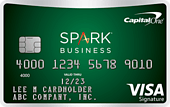
If points aren’t your thing and you’d rather have a cash back card for your business, I highly recommend the Capital One Spark Cash.
First, you get 2% cash back on everything. That’s a top-tier cash back reward. Second, there’s no limits or sneaky tricks. Spend money for your business and get cash back.
You can also add employees to your account for free. You’ll get cash back on their expenses too.
The only downside is the $95 annual fee. As long as you’re spending consistently on your card, you won’t have any trouble getting your money back in rewards.
For sheer simplicity, you won’t find a better card for your business.
*Terms apply – Learn how to apply online.
Discover It Secured Card Review
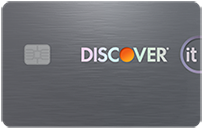
The Discover It Secured card has a remarkably good cash back program considering it’s a secured card.
You’ll get 2% cash back on gas stations and restaurants up to $1,000 in purchases each quarter. And an unlimited 1% cash back on all other purchases
Is the cash back as good as other cards? No. Does it mean you could get a decent cash back program at a much lower credit score than normal? Yes it does.
It’s a fantastic deal when you’re building your credit score, need to start with a secured card, and want to earn some cash back along the way. Once you’ve improved your credit score, upgrade to one of the better cash back cards.
And there’s no annual fee.
Unfortunately, this does mean you’ll have a Discover card. While most businesses accept it, you will come across places that don’t on a regular basis. Make sure you have at least one other card in your wallet as a backup, preferably a Visa or Mastercard.
*Terms apply – Learn how to apply online.
Conclusion
My top picks for the best credit cards in 2019 are the following 12 cards.
The 12 Best Credit Cards for 2019
- Chase Sapphire Preferred (Best Rewards Card for Most)
- Chase Sapphire Reserve ( Best Rewards for High Earners)
- American Express Platinum (Best Travel Perks)
- Blue Cash Preferred Amex (Best for Groceries and Gas)
- Citi Double Cash (Best Cash Back Card)
- Chase Freedom (Best Cash Back With Rotating Categories)
- Capital One® Platinum Credit Card (Best For Building Better Credit)
- Capital One® Secured Mastercard® (Best Overall for Bad Credit)
- The Business Platinum Card from American Express (Best for Business Travel)
- Chase Ink Business Preferred (Best for Online Ad Budgets)
- Capital One® Spark® Cash for Business (Best for Business Cash Back)
- Discover It Secured – (Best Rewards Secured Card)
Advertiser Disclosure: I Will Teach You To Be Rich has partnered with CardRatings for our coverage of credit card products. I Will Teach You To Be Rich and CardRatings may receive a commission from card issuers.
Best credit cards for 2020 is a post from: I Will Teach You To Be Rich.
Via Finance http://www.rssmix.com/

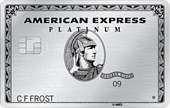
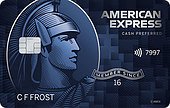
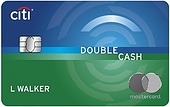
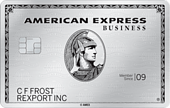
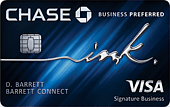
No comments:
Post a Comment